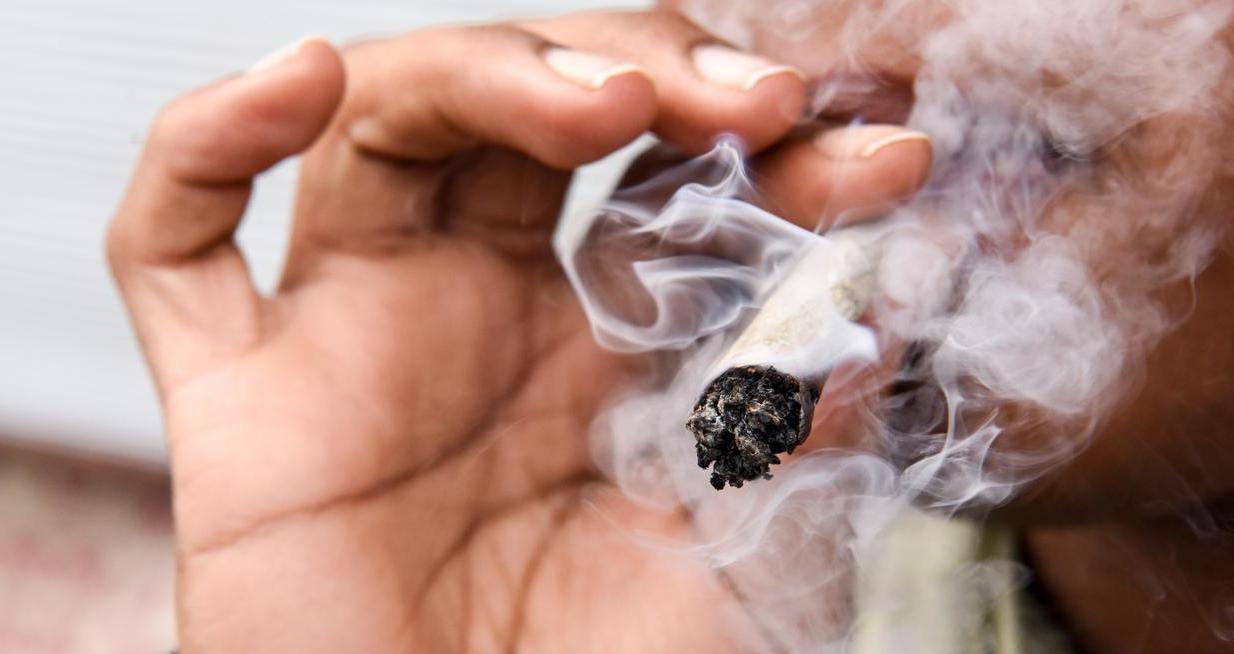Smoking cannabis increases violent behaviour in young people with mental health disorders, finds study
Users’ risk of violence rose by 144 per cent

Your support helps us to tell the story
From reproductive rights to climate change to Big Tech, The Independent is on the ground when the story is developing. Whether it's investigating the financials of Elon Musk's pro-Trump PAC or producing our latest documentary, 'The A Word', which shines a light on the American women fighting for reproductive rights, we know how important it is to parse out the facts from the messaging.
At such a critical moment in US history, we need reporters on the ground. Your donation allows us to keep sending journalists to speak to both sides of the story.
The Independent is trusted by Americans across the entire political spectrum. And unlike many other quality news outlets, we choose not to lock Americans out of our reporting and analysis with paywalls. We believe quality journalism should be available to everyone, paid for by those who can afford it.
Your support makes all the difference.A new study on cannabis has found that users with mental illness present an increased risk of violent behaviour.
The research conducted by the Institut en Santé Mentale de Montréal (Montreal Institute of Menal Health), studied 1,136 patients – from 18 to 40 years of age – with mental illnesses who had been seen five times during the year after discharge.
And while previous research has already shown a link between cannabis and aggressive behaviour, this new study found that users who continued to smoke at each follow-up appointment increased their risk of violence by 144 per cent.
The results also confirm the detrimental role of chronic cannabis use in patients with mental illness, with data proving a stronger association between cannabis use and violence than that associated with alcohol or cocaine.
While researchers say cannabis should therefore be considered as an indicator of future violent behaviour in patients who leave psychiatric care, they do insist that the aggression will fade over time.
“This decrease could be explained by better adherence to treatment (the patient becomes more involved in their treatment over time) and by better support from their entourage.
"Even though we observed that violent behaviour tended to decrease during follow-up periods, the association remained statistically significant,” said Dr Alexandre Dumais, a psychiatrist at the Institut Philippe Pinel.
The results also show that there is no reciprocal relationship between the two - that is, the use of cannabis resulted in future violent behaviour and not the reverse.
With a recent meta-analysis of neuroimaging studies demonstrating that chronic cannabis users have deficits in the prefrontal cortex – a part of the brain that inhibits impulsive behaviour – these results play an important role in offering information to young adults who can then evaluate the risks of cannabis before deciding whether or not to use it.
These results are important because they offer additional information to young adults, who can evaluate the risks of cannabis before deciding whether or not to use it.
Join our commenting forum
Join thought-provoking conversations, follow other Independent readers and see their replies
Comments